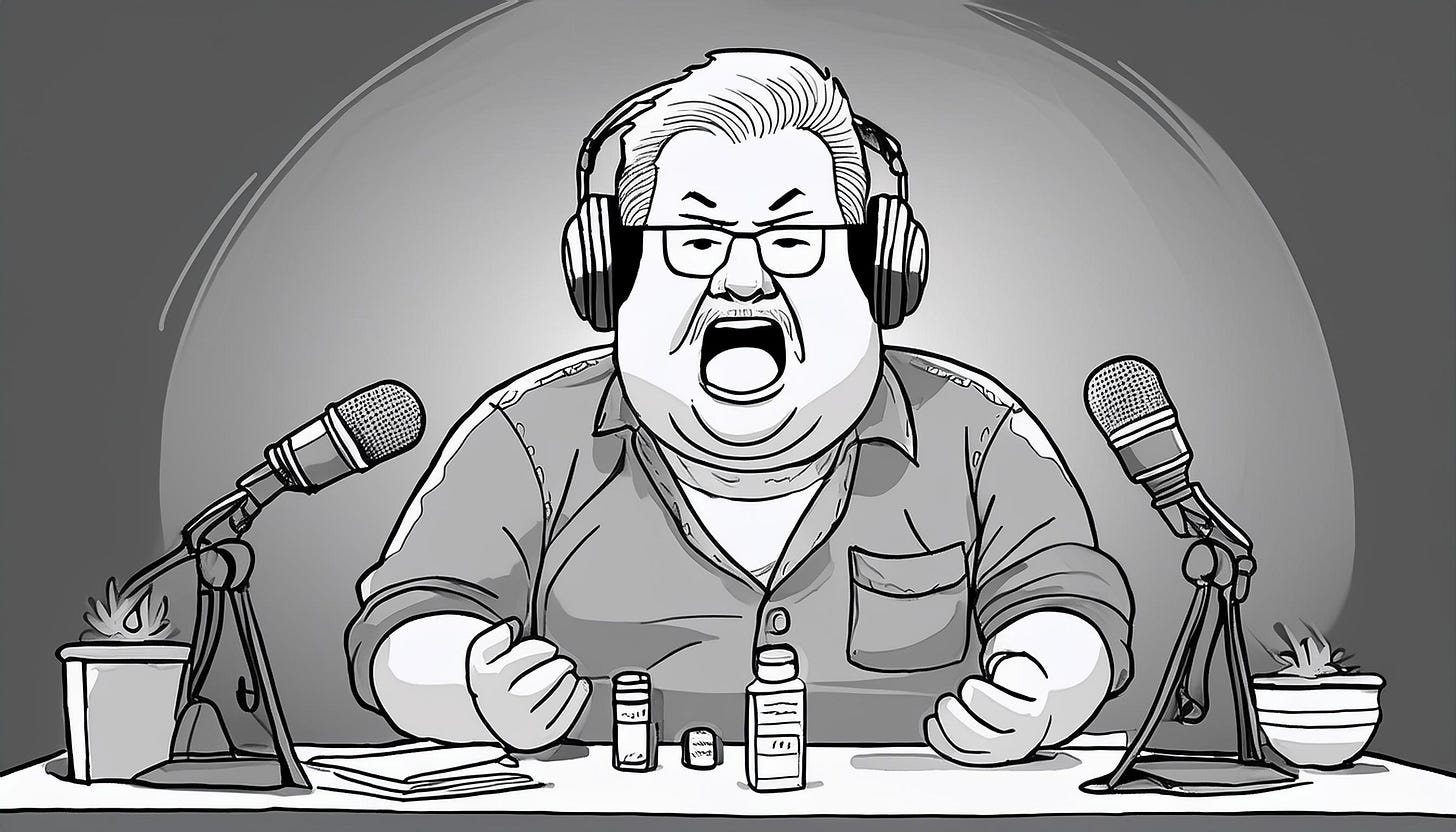
South Korea responds to Trump tariff claim: I didn't steal the lollipop!
South Korea needs a tad more creativity in its diplomatic responses to Trump
In his first speech to Congress of his second term, U.S. President Donald Trump turned very briefly to South Korea. Trump claimed that South Korea’s tariffs on U.S. goods are four times higher than those imposed by the United States. He framed this as an unfair trade imbalance, especially given America’s military and economic support for South Korea.
South Korean officials swiftly refuted the claim. Just hours after, they pointed out that under the U.S.-Korea Free Trade Agreement (KORUS), tariffs on U.S. imports into South Korea are effectively zero. Here was their first mistake.
South Korea’s foreign affairs epistemic community and those advising the acting president should be wiser. They should know better.
The truth, or as we can now say in our late capitalist world, their version of the truth, does not matter! I’ll say it again: Truth does not matter! Refuting the points made by President Trump in a speech is absolutely pointless. Doing it so rapidly and so emphatically, can only engender further angst.
Has nobody in the presidential office been watching events in America? Were they not around in the first Trump Administration? Between their marital law antics and ongoing chaos do they somehow think they’re one of Park Chung-hee’s foreign ministry minions dealing with the Carter Administration? Someone lost the plot!
A quick review of truth in diplomacy: In an era where political narratives overshadow empirical facts, the role of truth in international relations is ambiguous at best.
Traditionally, diplomacy is built on facts, negotiations, and trust. Without a shared commitment to truth, international agreements collapse under the weight of competing narratives. The age-old customs and traditions of diplomacy: tact, formality, discretion, elitism, secrecy, and truth, have steadily eroded over the years. In postmodern politics, where perception often dictates reality, the impact of truth depends less on its accuracy and more on how it is framed.
South Korea’s officials should well know that all states have their own versions of the truth. Sometimes these versions come into conflict, and sometimes into direct conflict. For a long time, South Korea has been able to come to a negotiated version of the truth when dealing with the U.S. Under Trump, there will be no negotiated truth.
With no capacity to negotiate a truth, an important question arises: is it better for South Korean officials to correct misinformation or is it better to remain silent?
Option 1: Correct misinformation
Refuting a false statement outright invites hostility. Trump appears to be a HIGHLY emotional man. Challenge him firmly, and he will come down on you like you bullied him in grade school and he’s just found out you work the tables at his casino. Challenging misinformation can provoke a leader into doubling down, further entrenching the falsehood in public discourse. It then becomes accepted fact, influencing future policies and negotiations.
What’s the result? Falsehoods become truths - Korea becomes a target.
This is what South Korea’s government chose. Put forward the truth! Let EVERYONE know the truth! It chose to immediately correct the statement. It corrected Trump and stated tariffs are close to zero. This means, Trump now needs to find ways to make South Korea pay - both on an emotional level and on a convoluted economic level (non-tariff barriers counted in Trump’s mind as equivalent to tariff barriers). South Korea’s decision was not strategic. It was a mistake.
Even if you are a stickler for the truth and your moral compass says that falsehoods should not be left to fester, then it has to be done in a way that does not engender emotional responses.
Direct government responses escalate tensions. Introduce alternative truth narratives through think tanks, journalism, third-party diplomacy, business and trade associations, or academic commentary. Independent research organizations can publish reports, respected media outlets can investigate claims, allied nations or trade organizations can counter falsehoods, business groups can share trade data, and academics can provide neutral analyses. Just don’t say it yourself!
Option 2: Let the s&%t flow freely
Truth alone does not shape policy. In modern diplomacy, emotional appeals, nationalistic rhetoric, and strategic misinformation carry as much weight as verifiable facts. Leaders use deliberately false claims to rally domestic support or pressure other nations into concessions - equally, leaders on the receiving side can accept or not refute false claims in recognition of this fact.
Keeping shtum on whether or not South Korea’s tariff rate is four times higher as stated in Trump’s speech to the U.S. Congress serves a purpose. Like most of Trump’s negotiation tactics, it’s an emotional exaggeration so that when the cards are dealt the player is willing to accept a lower hand. Staying quiet represents a risky approach - but not a stupid one.
What’s the result? Around a year later, Trump’s victory of reducing South Korea’s tariffs from four times higher to zero will be expressed loudly to the American people. Yay Trump!
This is NOT what South Korea’s government chose. “Our tariffs are close to zero… hmmmm… what can we do?” We can yell back and imply he’s a liar, they thought.
What should they’ve done? They should’ve cheered Trump:
“We’ll willingly work with the Trump Administration, and through our bilateral FTA, reduce tariffs down to zero. We have great faith in President Trump’s capacity to put an end to bilateral tariffs impeding trade between our nations.”
Perfect. You’re giving Trump the future tweet that he wants, and you’re effectively doing nothing.
“Did you steal that lollipop Jimmy?”
Accepting Trump’s claim and not responding would be the strategic option. Unless you’re actually really worried about something that you’re not letting on about… We’ve all seen those with a guilty conscience reveal their guilt in overly strong reactions.
Perhaps, South Korea’s version of the truth is just that - a version of the truth. Trump’s position on tariffs is to include all barriers to trade. There are plenty of stories about South Korea’s regulatory system, its business environment, and its government structures, as being notorious impediments to foreign investors and exporters. You can find these complaints on American, Canadian, and E.U. business association websites and government reports. Barriers to trade come in all shapes and sizes.
Just like when you ask a bunch of kids whether they stole the blue lollipop, the first and loudest to react usually has blue lips and a blue tongue.
Immediately refuting the claim suggests this is what really concerns South Korea. The South Korean government’s reaction looks like a guilty conscience.
Truth in modern diplomacy is precarious. It is not always useful to challenge falsehoods directly, and silence is sometimes a viable long-term strategy.
The key lies in finding ways to introduce the truth into the public sphere sometimes without attribution or to engage with the falsehood directly, and turn it into a positive. But, this requires a tad more creativity.







